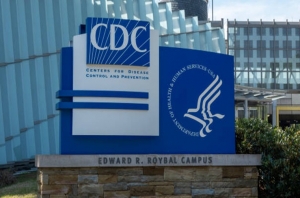Test Owner
The U.S. Centres for Disease Control and Prevention (CDC) is launching a large-scale study into potential links between vaccines and autism, despite extensive research dismissing any connection. This follows a major measles outbreak in Texas and New Mexico, with over 200 cases and two deaths, largely due to falling vaccination rates fuelled by misinformation.
U.S. Health Secretary Robert F. Kennedy Jr., a long-time sceptic of the MMR vaccine, has been at the centre of the debate. While he recently emphasised vaccination's importance in a Fox News piece, he maintained that parents should decide for themselves. The CDC and Health and Human Services (HHS) defended the study by citing rising autism diagnoses, but experts warn it may reinforce vaccine fears.
Dr. Wilbur Chen, a former CDC adviser, cautioned that launching such research could fuel public doubt. Many scientists attribute rising autism rates to broader screening and expanded diagnostic criteria. The debunked vaccine-autism link stems from Andrew Wakefield’s 1990s study. Research suggests autism is more likely tied to genetics, prenatal development, and birth complications rather than vaccines.
The issue has become increasingly political, with President Donald Trump referencing rising autism rates in a recent address to Congress. He expressed confidence in Kennedy and his team to investigate the matter. However, Kennedy’s position has raised concerns among some Republican lawmakers. Senator Bill Cassidy, a physician, urged Kennedy to disavow any vaccine-autism connection during his confirmation hearing, but Kennedy declined to do so. The debate has also extended to Trump’s nominee for the National Institutes of Health, Dr. Jay Bhattacharya, who faced questioning on his views regarding vaccine safety research.
New analysis from the King’s Fund has highlighted how rising staff costs in social care are forcing local authorities to cut back on support, leaving more people without the help they need. The report, Social Care 360, warns of a vicious cycle where increasing wages, rising fees, and budget pressures are reducing the number of people receiving care, despite growing demand.
The introduction of the National Living Wage in 2016 has driven up the cost of providing care, leading local councils to pay significantly higher fees. Further financial strain has come from increased National Insurance contributions, and while a proposed ‘fair pay agreement’ could improve wages in the sector, there are concerns it will push costs even higher unless fully funded. According to Simon Bottery, Senior Fellow at the King’s Fund, without proper government support, local authorities will continue to cut back on services, meaning even more people will go without vital care.
Despite councils spending more on social care, the number of individuals receiving long-term support has fallen from 873,000 in 2015/16 to 859,000 in 2023/24. The biggest reduction was among older adults, with numbers dropping by nearly 30,000. At the same time, demand for care is increasing, with 2.1 million people requesting support last year, including a sharp rise among working-age adults. However, a rise in overseas care workers has helped to reduce sector vacancies.
Charities, including Mencap, warn that the social care system is in crisis, with many people struggling to access the help they desperately need. Jon Sparkes, Chief Executive of Mencap, described the situation as deeply concerning, urging the government to provide immediate funding instead of delaying reforms. With care providers under pressure and many people with learning disabilities struggling to find support, experts argue that urgent action is needed to prevent further decline in the system.
A prescription drug traditionally used for cancer treatment and anaemia, leucovorin, has shown potential in helping some non-verbal autistic children develop speech, according to emerging research. Although not officially approved for autism treatment, some families have reported improvements in communication skills after its off-label use. Leucovorin, a form of vitamin B9, supports folate absorption and is believed to aid neurological function in children with autism who may have a deficiency.
Dr Richard Frye, a behavioural child neurologist, has led research into leucovorin’s effects, noting that it may also enhance social interaction, reduce repetitive behaviours, and improve attention. Studies suggest a significant number of autistic children have antibodies that block folate transport to the brain, and leucovorin bypasses this issue by using an alternative pathway. While small-scale studies have shown promising results, experts stress that larger clinical trials are needed to confirm its effectiveness.
Medical professionals warn that while leucovorin has been used safely for decades, it is not suitable for all autistic children. Some experience increased hyperactivity or no benefit at all, making professional medical guidance essential before considering treatment. Researchers are working towards gaining FDA approval, which could lead to standardised dosing, greater medical recognition, and potential insurance coverage.
Experts emphasise that leucovorin is not a standalone solution but could complement behavioural and speech therapies. Autism Speaks’ chief science officer, Dr Andy Shih, cautioned that individual successes cannot yet be applied to the broader autistic community, reinforcing the need for further research. Families are encouraged to consult healthcare professionals before exploring off-label treatments.
Researchers at Loughborough University have developed an advanced artificial intelligence (AI) model designed to predict how long individuals with learning disabilities may need to remain in hospital. The breakthrough, part of the DECODE project, aims to improve patient care, enhance resource planning, and address healthcare inequalities for those with complex health conditions.
The study, published in Frontiers in Digital Health, identified cancer as the primary reason for hospital admissions among patients with learning disabilities, while epilepsy was the most commonly treated condition during inpatient stays. On average, hospital stays last three days, but those exceeding 129 days are often linked to mental health conditions. Longer hospitalisations are more common in patients over 50, those living in deprived areas, individuals with obesity, or those with multiple long-term health conditions.
By analysing GP and hospital records from over 9,600 patients in Wales, the AI model demonstrated 76% accuracy in predicting whether a patient would experience a prolonged hospital stay. Professor Georgina Cosma, an expert in AI for healthcare, explained that the model evaluates factors such as age, medical history, and lifestyle to provide early predictions, allowing hospitals to improve planning and deliver personalised care.
The findings will support NHS efforts to develop risk assessment tools for clinical decision-making. Dr Satheesh Gangadharan, co-lead of the DECODE project, highlighted the potential to reduce hospital admissions by identifying earlier intervention opportunities and encouraging patient involvement in their care. The next phase of research will apply the model to hospital datasets across England to assess its wider applicability.
The National Institute for Health and Care Excellence (NICE) has approved a new treatment for Lennox–Gastaut syndrome, a severe and treatment-resistant form of epilepsy. This rare neurological condition causes significant learning and behavioural difficulties, with many affected children experiencing developmental delays before seizures begin. The newly recommended drug, fenfluramine (Fintepla), can now be used alongside existing antiseizure medications for individuals aged two and older. Its effectiveness is assessed every six months, with treatment discontinued if it fails to reduce seizure frequency by at least 30%.
Lennox–Gastaut syndrome is particularly difficult to manage, as many existing treatments lose effectiveness over time, leaving patients with limited options. The approval of fenfluramine addresses an urgent need for alternative therapies, particularly for those unable to take cannabidiol with clobazam. The independent committee considered the severity of the condition and its impact on patients’ quality of life when making its recommendation, acknowledging the daily struggles faced by families.
The introduction of fenfluramine offers a vital alternative for individuals who cannot tolerate cannabis-based treatments. By improving seizure control, it has the potential to enhance stability, increase independence, and reduce hospital admissions. The decision reflects a strong commitment to expanding access to effective therapies that improve patient outcomes, alleviate family burdens, and support healthcare professionals in managing this challenging condition. Long-term benefits could lead to greater advancements in epilepsy treatment.
NICE previously endorsed fenfluramine for Dravet syndrome, another rare childhood epilepsy. Its latest approval allows more patients to benefit from a proven treatment that helps manage severe seizure disorders, providing better long-term prospects for individuals living with complex epilepsy conditions.
Group and village communities for autistic people and those with learning disabilities are at risk of closure due to restrictive guidance from the Care Quality Commission (CQC). A framework introduced in 2020, Right Support, Right Care, Right Culture, aims to promote dignity, independence, and community access. However, a clause prevents the registration or favourable rating of new congregate or campus-style settings, leading to closures and the displacement of residents into unfamiliar environments.
Despite evidence showing that village communities offer a safe, fulfilling way of life, families say the CQC’s stance unfairly limits housing choices. In response, relatives have launched Our Life, Our Choice, demanding guidance be updated to allow well-managed village communities to be considered alongside other housing options such as supported and independent living. Campaigners argue individuals should have the right to decide where they live, whether in urban, rural, or community-based settings.
Policies have rightly moved away from outdated NHS hospitals, but campaigners believe these policies have wrongly equated village communities with past models of care. David Wilks, chair of the campaign, argues current guidance discriminates against learning-disabled individuals, as no such restrictions exist for retirement villages, dementia care homes, or nursing communities. He insists choice, a key principle of care, is being undermined by the CQC’s rigid approach.
Village communities, often in rural locations, provide not only housing but also employment, education, and social opportunities, allowing residents to contribute meaningfully. Critics argue these settings isolate individuals from society, but campaigners maintain that people with learning disabilities should choose how and where they live.
People with learning disabilities and autism in Scotland remain in institutional settings, violating their human rights, according to a new report from Scotland’s human rights watchdog. The Scottish Human Rights Commission highlights serious gaps in meeting rights standards and a lack of progress under the Scottish Government’s Coming Home Implementation Plan. Launched in 2022, the plan aimed to transition individuals from hospitals to independent living by March 2024 and prevent unnecessary admissions for non-medical reasons.
The report raises concerns over funding misuse. Of the £20 million Community Living Change Fund, over £12.5 million remained unspent in its final year. Some funds were even used to refurbish institutions instead of supporting community-based housing, contradicting the right to independent living and undermining the initiative’s goals.
The Commission urges the Scottish Government to adopt a new strategy ensuring the rights of people with learning disabilities and autism are upheld. It has proposed a framework to guide reforms and insists urgent action is needed to meet legal obligations. Professor Angela O’Hagan, Chair of the Commission, stressed that too many are still placed far from home or left in hospitals due to a lack of alternatives.
To help those affected, the Commission has launched a film and toolkit, co-created by individuals with lived experience, to help them assert their right to independent living. The watchdog pledges to continue pushing for urgent government action.
The National Down Syndrome Policy Group (NDSPG) and more than 61 organisations advocating for disabled people across the UK have issued an open letter expressing serious concerns about the proposed legalisation of assisted dying. They urge MPs to approach the Terminally Ill Adults (End of Life) Bill with greater caution, ensuring a thorough and inclusive review to prevent unintended harm to vulnerable individuals, as seen in other nations where similar laws have been introduced.
The letter highlights fears that assisted dying legislation could expose individuals with Down syndrome and learning disabilities to undue pressure or coercion, particularly if they struggle to fully understand or consent to life-ending decisions. There is already a history of healthcare inequality, as demonstrated during the Covid-19 pandemic when NHS staff had to be reminded that learning disabilities should never be used as justification for issuing DNACPR (Do Not Attempt Cardiopulmonary Resuscitation) orders. Despite this, research from King’s College London in 2021 uncovered continued failures in the use of DNACPR orders for those with learning disabilities.
Campaigners also criticised the rushed nature of the consultation process, arguing that it fell short of the recommended 12-16 week period, limiting proper public engagement. They pointed out that a lack of accessible materials and adjustments excluded people with learning disabilities from fully participating in discussions on a law that directly affects them.
Rachael Ross MBE, Founding Officer of NDSPG, emphasised the need for caution, stating that while compassionate end-of-life care is essential, the proposed bill does not ensure protection for all. She warned that international evidence shows such laws inevitably expand beyond their original scope, placing the most vulnerable at risk. She stressed that the government has a responsibility to safeguard those at risk and should not proceed with legislation that carries any uncertainty regarding their safety and dignity.
A new report has revealed serious failings in the provision of paediatric continence supplies across England, Wales, and Scotland, leaving disabled children and their families struggling without proper support. Research by Cerebra, alongside Leeds University’s School of Law and the Parent and Carer Alliance CIC, highlights the lack of clear guidance on dignified and accessible continence care. Many families are forced to cover the cost of essential products, while poor-quality supplies lead to additional expenses, including increased laundry and damage to clothing and furniture.
Children with bladder and bowel conditions are often left with ineffective, oversized products, resulting in distress, embarrassment, and social exclusion. Frequent leaks and odours make them vulnerable to bullying and prevent them from fully participating in childhood activities. Report author Luke Clements, Cerebra Professor of Law & Social Justice, described the situation as a “devastating failure” by health and social care services, urging immediate government intervention.
With 900,000 children in the UK affected by bladder and bowel dysfunction, disabled children are disproportionately impacted. Delays in accessing adequate support leave many in pain, at risk of long-term health issues, and socially isolated. Parents often feel blamed for seeking essential products, adding to their distress.
Lucy Fullard, CEO of the Parent and Carer Alliance CIC, called for urgent action, stating that the ongoing crisis is violating young people’s human rights. Cerebra is demanding clear national guidance to ensure all disabled children receive the continence care they deserve.
A new £1.6 million Learning Disability Support Fund has been launched in Scotland to help third sector organisations promote equality, inclusion, and better access to healthcare and social opportunities for individuals with learning disabilities. This initiative replaces the previous Inspiring Inclusion Learning Disability Fund, offering grants between £75,000 and £250,000.
Running for 30 months from October 2025, the fund will distribute £325,000 in its first year, followed by £650,000 annually for the next two years. Minister for Wellbeing, Social Care and Sport, Maree Todd, acknowledged the progress made over the past three decades in supporting those with learning disabilities but stressed the need for further improvements. She highlighted the vital role of third sector organisations in ensuring individuals can live independent, fulfilling lives and access essential services, including healthcare and relationship education.
The Scottish Government has shaped this funding programme based on feedback from people with learning disabilities and will continue working closely with charities to ensure the grants lead to meaningful change. The initiative aims to enhance access to crucial services and opportunities, helping individuals take an active role in their communities.
Celia Tennant, CEO of Inspiring Scotland, expressed pride in overseeing the application process, noting the significant impact such funding has had in the past. Eligible Scottish not-for-profits can apply until 11:59 am on Wednesday, 26 February 2025.












